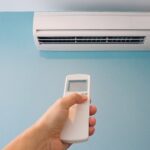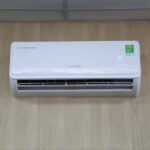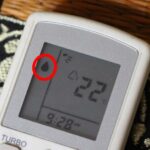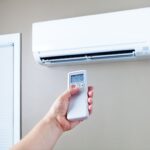Hanoi, along with the rest of the country, is currently experiencing a five-day holiday period, which coincides with the peak of the hottest days of the year so far. As a result, many families are concerned about how to use air conditioning effectively and economically.
In a previous article, we introduced readers to a study by a group of experts from Saudi Arabia, which measured the energy consumption of two types of air conditioners – a conventional air conditioner and an inverter air conditioner – over a period of 108 days. The study explained why turning on the air conditioner during the early afternoon, from around 2 pm to 8 or 10 pm, depending on the season, can result in higher electricity consumption.
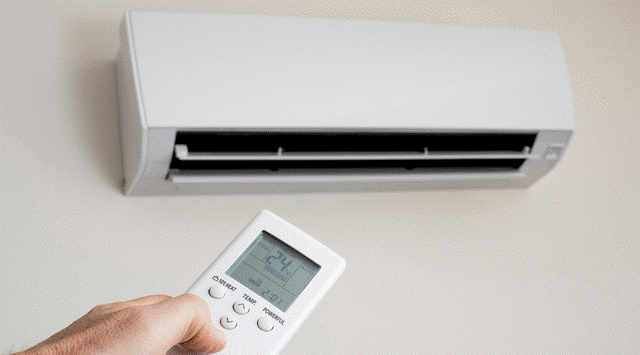
Worrying about how much electricity is used when turning on the air conditioner during the hottest hours of the day (Illustrative image)
Today, we will continue to analyze the experts’ previous experiment and take a closer look at the electricity consumption of the two air conditioners. In particular, we will focus on the electricity consumption during the afternoon hours.
How much electricity does an air conditioner use in the afternoon?
The experts turned on the two air conditioners 24 hours a day, from July 16 to October 31, 2019. They then presented a detailed analysis of the electricity consumption of the devices during each hour of representative days of the month. The analysis showed the electricity consumption of the two air conditioners during different time frames.


The two air conditioners used in the experiment were turned on continuously and equipped with specialized meters connected directly to the experts’ computers.
Four representative days of the month were chosen: July 21, August 21, September 18, and October 21. The analysis showed that on the two selected days in July and August, during the peak hours of the hottest part of the day from 2 pm, the conventional air conditioner consumed 1.2 kWh of electricity. This consumption level was maintained throughout the afternoon and increased during the 4 pm to 6 pm period, reaching 1.4 to 1.5 kWh. Even after the afternoon, during the evening hours, the electricity consumption of the conventional air conditioner remained high.
In September and October, the weather was probably starting to turn cooler. As a result, the electricity consumption of the conventional air conditioner also decreased slightly. During similar hours in these months, the electricity consumption was only 0.8 to 1.2 kWh. In the evening, it sometimes increased to 1.3 kWh.
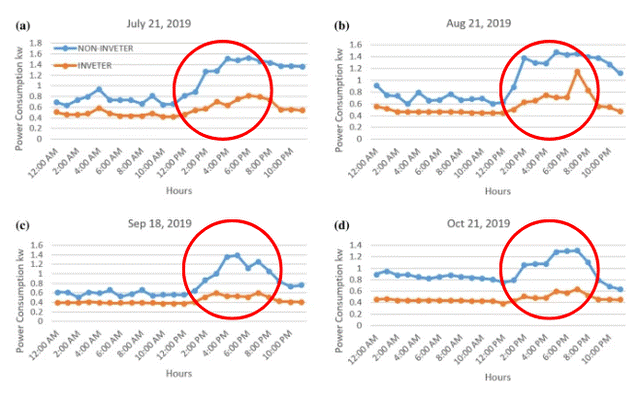
The chart shows the electricity consumption of the two air conditioners at different times of the day, with the afternoon hours being the peak period of electricity consumption.
Similarly to the conventional air conditioner, the inverter air conditioner also consumed the most electricity during the hottest hours of the day compared to other times. However, the amount was significantly lower. Specifically, in July, the electricity consumption was only about 0.7 kWh at 2 pm to 3 pm, and at 5 pm to 6 pm, it tended to increase but only slightly, reaching 0.8 kWh.
The results in August were similar, except that during the 6 pm to 8 pm period, the inverter air conditioner consumed the most electricity of the day, reaching 1.2 kWh. In September and October, the electricity consumption tended to decrease, fluctuating between 0.5 and 0.6 kWh during similar hours.
Explaining the higher electricity consumption during the hottest hours of the day, the experts suggested that outdoor temperature can also affect the electricity consumption of the devices. When the weather is hot, and the outdoor temperature is high, reaching nearly 40 degrees Celsius, the air conditioner will need to operate at a higher capacity to optimize cooling, sometimes even reaching maximum capacity. This ensures that the needs of the users are met. Therefore, the amount of electricity consumed will be higher when the device operates at a lower capacity during cooler weather.
Through this experiment, we can clearly see the optimization of electricity savings that inverter technology brings to air conditioners compared to conventional ones. Additionally, the stability of electricity consumption is evident through the electricity consumption chart, which shows fewer fluctuations.
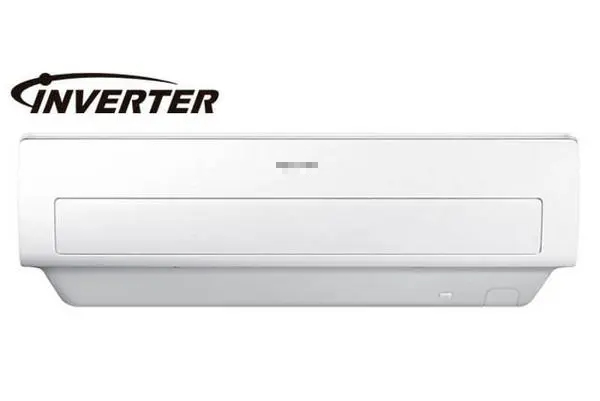
Inverter technology provides better electricity savings and stability compared to conventional air conditioners (Illustrative image)
How to use air conditioning economically?
As mentioned, during the summer or the hottest hours of the day, the use of air conditioning for cooling is a vital need for every family. However, there are some tips that users can refer to and apply to make the use of air conditioning more effective, economical, and safe.
Firstly, when choosing an air conditioner, in addition to considering inverter technology, users can also look for energy labels with more stars. This is something that is often overlooked when buying air conditioners or other electrical appliances. Devices with more stars on their energy labels are more energy-efficient than those with fewer stars. Currently, the standard is a maximum of five stars, and the more stars, the more energy-efficient the device is.
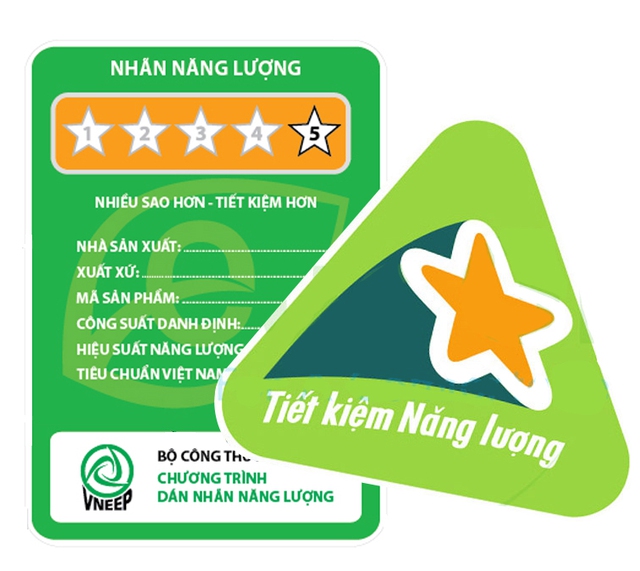
The more stars on the energy label of an electrical appliance, the more energy-efficient it is (Illustrative image)
The second tip, as recommended by the Vietnam Electricity Group (EVN), is to use air conditioning in combination with a fan or to use them alternately. Using them in combination will reduce the load on the air conditioner, as users can set the air conditioner to a lower mode, thereby reducing electricity consumption. Alternating their use will give the air conditioner some rest time. Ideally, the air conditioner should not be used for more than 15-20 hours a day, even on the hottest days.
The rest of the time, a fan can be used instead.
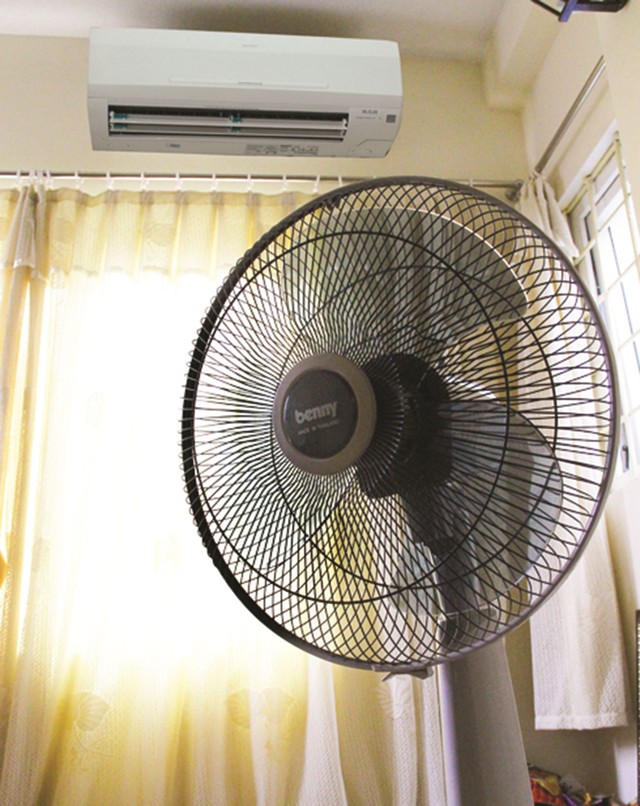
EVN recommends using a fan along with the air conditioner or alternating their use (Illustrative image)
To ensure the effective, economical, and long-lasting operation of the air conditioner, users should also avoid setting the device to a continuously low temperature. Many families assume that setting the air conditioner to a low temperature, below 20 degrees Celsius, will optimize cooling. However, in the long run, this can lead to increased electricity consumption, overloading the device, reducing its lifespan, and negatively impacting human health.
Therefore, consider the following sequence when using an air conditioner: When first turning it on, set the temperature to a low setting of around 21-23 degrees Celsius. After 30-60 minutes, gradually adjust the temperature to above 25 degrees Celsius (ideally between 26 and 28 degrees) and use a fan simultaneously. Maintain this temperature setting.
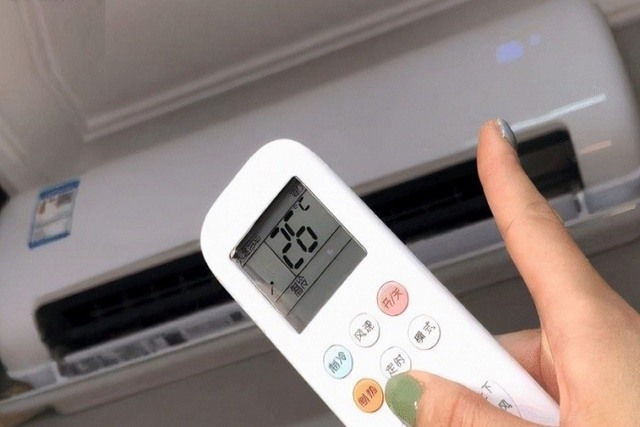
Illustrative image
Finally, users should regularly inspect and maintain their air conditioners and repair them promptly if any abnormal malfunctions are detected. Even minor issues can affect the operation of the device, leading to increased electricity consumption.
According to “Đời sống pháp luật”

























